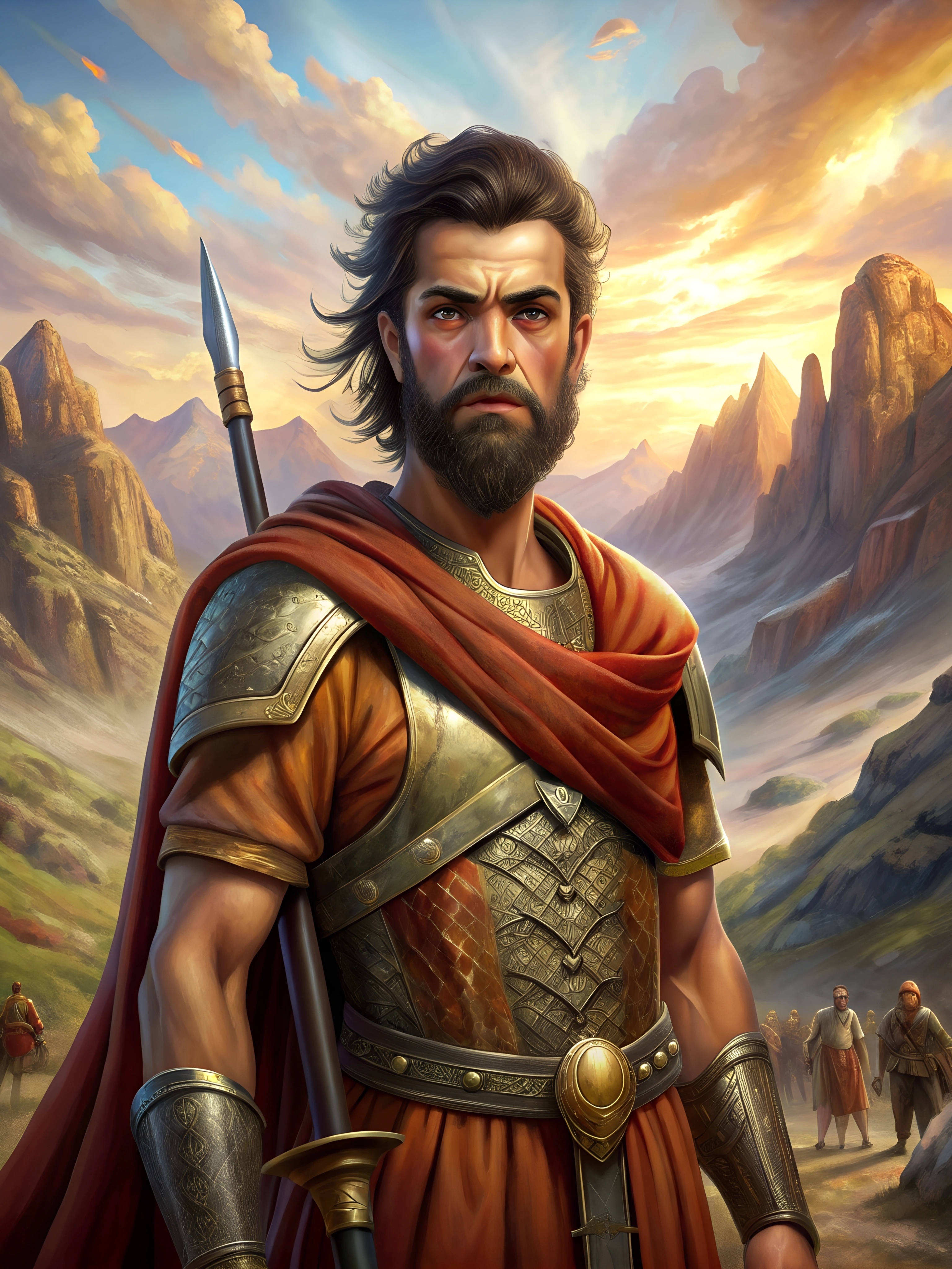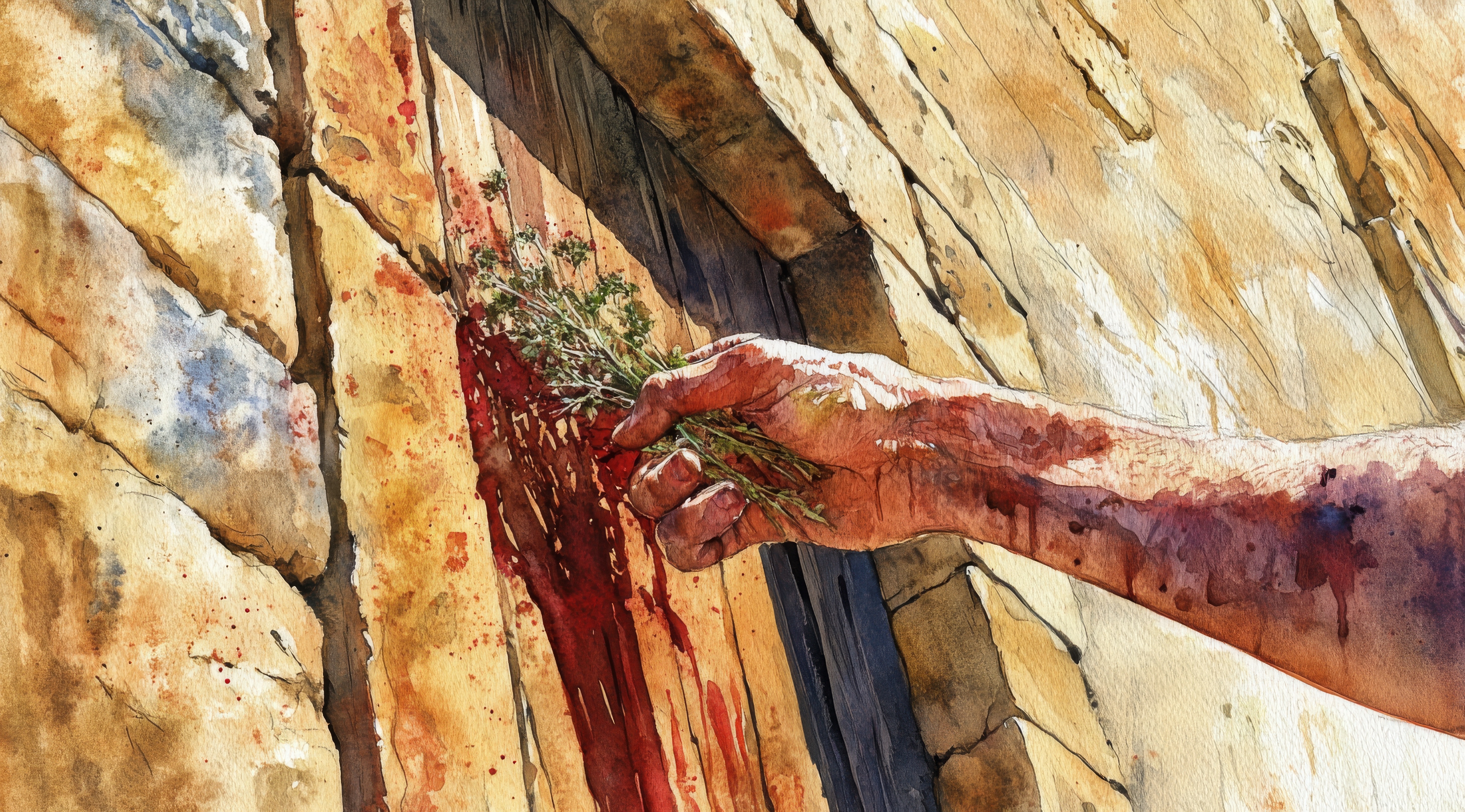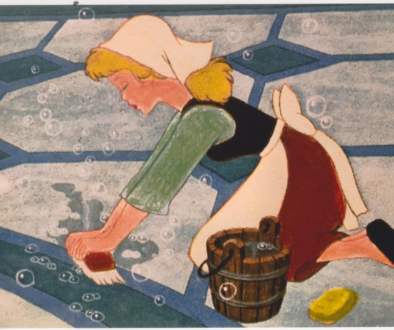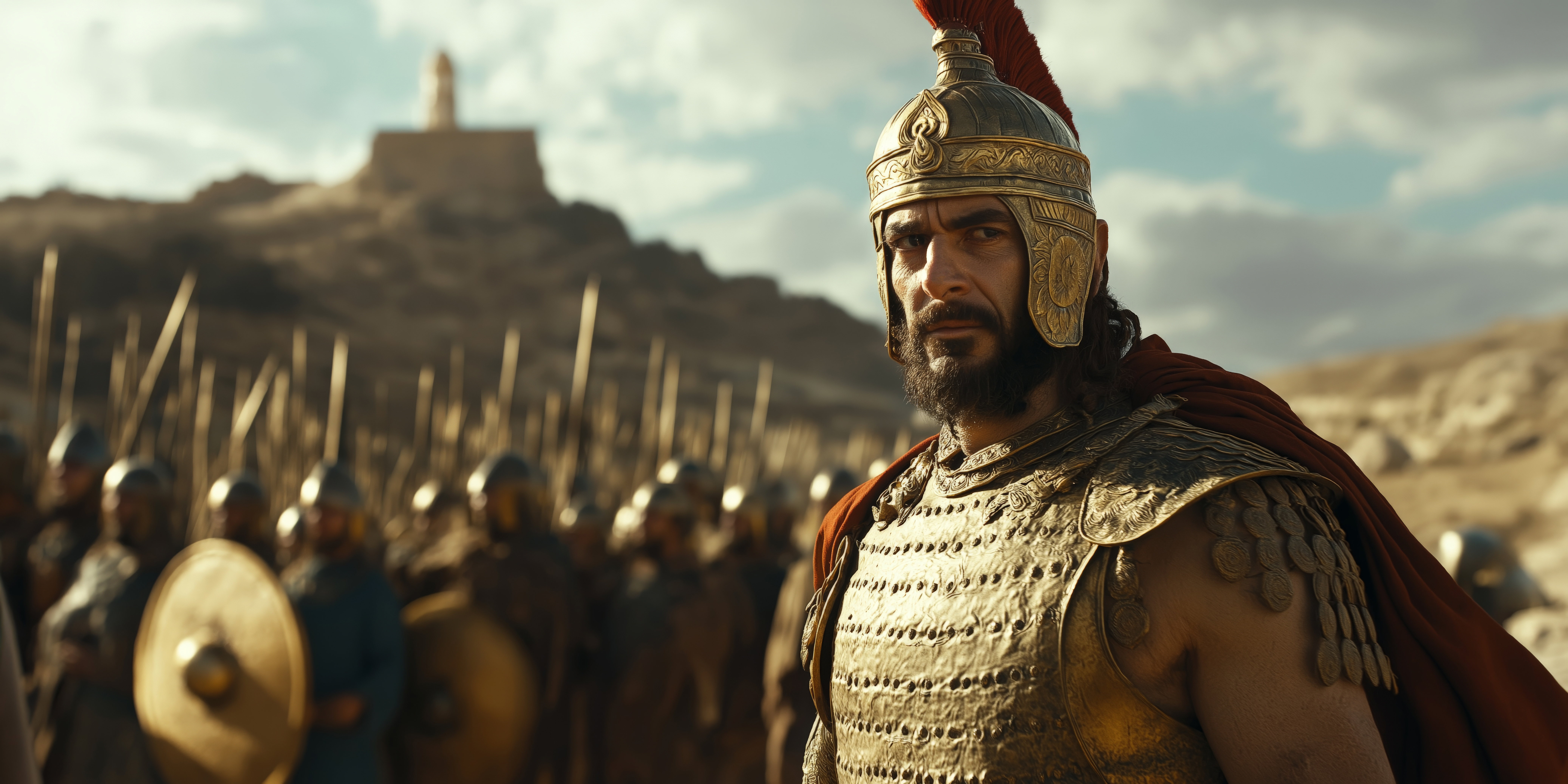1 Samuel 10-11 King Confirmed
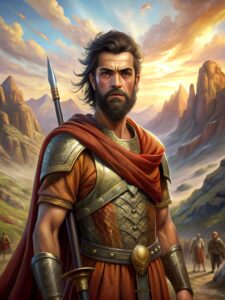
It takes three times of God pointing out Saul as king before he actually takes that roll. Saul as king is confirmed the last time in his own town.
I’m scratching my head again over timelines. After Samuel told Saul all that he would encounter on his way home, he added that Saul was to wait in Gibeah for seven days. Samuel promised to come up to him and confirm his as king at that time. Samuel does come up, but to Mizpah. There he points to Saul as king. Saul doesn’t take the throne but goes back to his normal life.
When Jabesh-gilead is threatened, then Saul steps up as a leader. Once the people are safe, Samuel comes to Gibeah and all the people proclaim Saul as king.
My question is, did the week expire with Samuel at Mizpah or at Gibeah? As the people of Jabesh-gilead gave their tormentors a week before they surrendered, I think Saul’s week ended at Mizpah. I don’t know that God would fault me with either direction I took. I feel like there was a little more time for Saul to get used to the idea of being king, so that is how our story will unfold. Let’s join Saul as the crown begins to feel a little better resting on his head.
♥ ♦ ♥
After the sacrifice on the high place in Gibeah, Saul returns to his daily routine. He is terrified to tell anyone all the words Samuel shared with him. “Will they think me a usurper?” “Will they call me a fool?” “Will they think me a liar?” All these thoughts circle in his mind. The most alarming one of all though is; “Will them make me be king?”
Israel has never had a king before and Saul doesn’t have the faintest idea what a king is supposed to do. Whatever it is, he KNOWS that he is NOT ‘king material’. “Samuel must have got it wrong. Or I’m not really understanding his meaning.” Even as Saul says these things to himself, he can’t help but remember Samuel’s prophecies about his journey home and how EVERY ONE OF THEM came to pass.
Saul keeps himself as busy as possible while the seven days that Samuel specified tick by. The fifth day arrives with a message. Samuel has called for all of Israel to assemble at Mizpah. Samuel’s message doesn’t specify the reason for the assembly, but Saul has a sneaking suspicion the he knows why. “Samuel is going to try and force the crown on my head” Saul tells himself. He knows he can’t get out of going, but if he isn’t available, Samuel can’t make him king.
The trip to Mizpah finds Saul quieter than usual. His family and friends try and draw him out, but he keeps them at bay with one-word answers to their questions and deafness to their attempts to engage him in conversation. His heart and mind are racing with possibilities and plans. He HAS to avoid Samuel at all cost!
The atmosphere at Mizpah is one of excitement and expectancy. This is the first time Samuel has called them all together since saying that they could have a king. “Do you think he will announce who the Lord has chosen today?” “Who do you think it will be?” “Please don’t let it be one of his sons!” “Our tribe is the largest. Certainly it will be one of us!”
Snippets of conversation like this can be heard throughout the assembly. All conversation stops though when Samuel steps up on the small knoll where sacrifices are offered. A hush falls over the assembly.
Saul has been waiting for and dreading this moment. He knows that, with his height, he stands out in any crowd, so he has purposefully kept sitting on a rock as the people gathered and moved around him. When Samuel stepped up on the knoll, Saul ducked down and did a quick scuttle over to the place where the people had deposited their baggage. He finds a comfortable spot on the far edge and sits down. No one notices his exit as their attention is on Samuel.
Samuel begins his address. “Thus says the Lord, the God of Israel, ‘I brought up Israel out of Egypt, and I delivered you from the hand of the Egyptians and from the hand of all the kingdoms that were oppressing you.’ But today you have rejected your God, who saves you from all your calamities and your distresses, and you have said to him, ‘Set a king over us.’ Now therefore present yourselves before the Lord by your tribes and by your thousands.” (1 Samuel 10:18-19)
Saul listens as the people begin reorganizing themselves before Samuel in the manner he directed. There are many “excuse me”, “over here”, and “out of my way” comments made during this reshuffle. Saul is glad he isn’t part of that chaos. Samuel waits patiently while everyone moves into place.
Once all are ready, Samuel calls for the tokens of each tribe to be placed in his bag. Eleven tokens are quickly deposited. One for each tribe. Samuel reaches in his bag and pulls from it the token of the tribe of Benjamin.
Several disappointed moans are heard throughout the congregation. “Benjamin. Of all the tribes…” is expressed by more than a few. Saul cringes in his hiding place.
The congregation knows what to do next, without even being told. The tribe of Benjamin reshuffles itself into clans as the rest of the assembly drops back a little bit. The clan of Matrites is drawn from the bag this time. The families of the clan of Matrites place their tokens in Samuel’s bag and the rest of the tribe drops back. Saul’s anxiety is climbing higher with every draw.
The family of Kish is drawn next. Saul freezes where he is. He is holding his breath, knowing what is coming next. Without even putting a token in for himself, he hears Samuel announce that the son of Kish has been chosen.
People begin looking around for the man identified by Samuel, but no one can find him. Saul scrunches down as small as he can, hoping no one will look his way.
“Is there a man still to come?” (1 Samuel 10:22a) someone calls out from the crowd. “Ask the Lord again, for he is not here.”
The instant those words leave that person’s lips, Samuel’s voice rings out with the words of the Lord. “Behold, he has hidden himself among the baggage.” (1 Samuel 10:22b)
“No, no, NO” thinks Saul as he hears his hiding place being disclosed. It only takes seconds for Saul to be discovered and pulled from the baggage.
Saul is propelled by the people to the front of the assembly. There is no hiding now. Once he is standing before Samuel, he has given up hiding. He stands to his full height and faces down his fears. Samuel steps over to Saul and turns him to face the congregation.
“Do you see him whom the Lord has chosen? There is none like him among all the people.” (1 Samuel 10:24a)
“Long live the king!” (1 Samuel 10:24b) began to ring out from every corner of the congregation.
Saul blushed as he heard the people. He certainly didn’t feel like a king.
Samuel turned Saul to face him again. “I have instructions from the Lord concerning your role as king. These were given to Moses when the Lord gave him the Law.”
“A king ‘must not acquire many horses for himself or cause the people to return to Egypt in order to acquire many horses, since the Lord has said to you, ‘You shall never return that way again.’ And he shall not acquire many wives for himself, lest his heart turn away, nor shall he acquire for himself excessive silver and gold.
“And when he sits on the throne of his kingdom, he shall write for himself in a book a copy of this law, approved by the Levitical priests. And it shall be with him, and he shall read in it all the days of his life, that he may learn to fear the Lord his God by keeping all the words of this law and these statutes, and doing them, that his heart may not be lifted up above his brothers, and that he may not turn aside from the commandment, either to the right hand or to the left, so that he may continue long in his kingdom, he and his children, in Israel.” (Deuteronomy 17:16-20)
After giving Saul these instructions, Samuel dismissed all of Israel to go to their own homes. Saul went back to Gibeah with his family. As Saul stood before the congregation, the Lord touched the hearts of several valiant men and they returned to Gibeah with Saul. They would offer their services as protectors.
There were other men in the congregation who had just the opposite reaction. “How can this man save us?” (1 Samuel 10:27) they spit. They began to despise Saul from that very moment, and were not silent about it. Saul heard their comments but he refused to do anything about it. He was having the same thoughts himself, although not with malice.
A month went by and the people of Israel went about their regular lives. One day, the Ammonites near the town of Jabesh-gilead decided to rise up and attack the city. The people in Jabesh-gilead had no great fighting forces to defend themselves with. They called out for peace instead. They were willing to be servants even, for the sake of peace.
“Make a treaty with us, and we will serve you.” (1 Samuel 11:1) they offered.
The Ammonites laughed at their attempt and countered their proposal. “On this condition I will make a treaty with you, that I gouge out all your right eyes, and thus bring disgrace on all Israel.” (1 Samuel 11:2)
The generals laughed even harder as this message was delivered. “They will never go for it” one of them commented.
“They will if they want to live”, said the ranking commander.
The people of Jabesh-gilead cried over this ultimatum. What could they do? Either fight and be annihilated or surrender and be a laughing stock of Israel; as well as being half blind. The head of the town elders had another proposal to put before the Ammonites.
“Give us seven days’ respite that we may send messengers through all the territory of Israel. Then, if there is no one to save us, we will give ourselves up to you.” (1 Samuel 11:3)
“You have seven days. Not a moment more” replied the commander of the army of Ammonites.
Word went out immediately to all the territories of Israel. “The Ammonites have come against us. They demand our surrender and will put out our right eyes, unless our brothers come to our rescue. We have seven days before this fate befalls us.”
“Are you going to let them send for help like that” asked one of the generals in the Ammonite army.
“No one will come to their rescue. The Philistines have taken all their weapons from them. They are like children.”
“Are you going to wait the full seven days though? Why not take them now?”
“Because I want to see them squirm. I want them to learn that they are on their own. NO ONE will come to their rescue.”
“I sure hope you are right” the general thought to himself as he exited the tent of their commander. “You will look like a fool, or worse, if you are wrong” he says under his breath.
Everywhere the message from Jabesh-gilead went, people wept. “We cannot possibly risk our lives to save them. Our poor brothers! Our hearts go out to you.”
Saul was coming home from working in the fields about the time the message reached Gibeah. He heard the people weeping bitterly. He found one man standing alone and approached him. “What is wrong with the people, that they are weeping?” (1 Samuel 11:5)
“Jabesh-gilead has been besieged by the Ammonites. The people are calling for help, but none in Israel are brave enough to stand before the Ammonites. If no one comes to the aid of our brothers, the Ammonites will put out all of their right eyes and make servants of them.”
Saul’s spirit began to boil with rage. How dare the Ammonites do this to God’s people! And how dare the people abandon their brothers in their time of need!!! This anger was a righteous anger from the Lord and it compelled Saul to act.
Saul took hold of the oxen that he had been plowing with only moments ago and slaughtered them there in the middle of the road. He cut them into pieces and called out to the men nearby. As they gathered around him he gave them his orders.
“Take these throughout all of Israel and say to the people; ‘Whoever does not come out after Saul and Samuel, so shall it be done to his oxen!’ (1 Samuel 11:7b)”
The Spirit of the Lord acted upon all the men of Israel. They were more afraid of disappointing Saul than they were of death at the hands of the Ammonites. Men began coming to Saul by the thousands and tens of thousands. Saul led them to Bezek to muster against the Ammonites. In total, there were more than 300,000 men assembled. None carried armor, sword or shield, but were armed with every farm implement imaginable. And the determination of the Lord to see their brothers vindicated.
Saul prepared a message to take word to the leaders of Jabesh-gilead. “Thus shall you say to the men of Jabesh-gilead: ‘Tomorrow, by the time the sun is hot, you shall have salvation.’” (1 Samuel 11:9)
The men of the Ammonites ignored the messenger as he skirted their camp and entered the city. “Aren’t we going to do anything about him” asked the captain.
“Let them come. We will have even more sport with them AND their ‘rescuers’. Don’t be so worried. We have far superior armament and training.”
The leaders of Jabesh-gilead were overjoyed to receive the response from their brothers. “Tomorrow we will give ourselves up to you, and you may do to us whatever seems good to you.” (1 Samuel 11:10) was their reply to Saul.
Morning had barely broken when the armies of Saul descended on the camp of the Ammonites. Saul had divided his forces into three companies and attacked the camp from three different directions. The Ammonites were completely surprised by Saul’s tactic. It was customary for forces to face off in an open field for battle, but this is not what Saul chose to do.
Fighting was fierce and went on for hours; until the heat of the day. By that time, there were very few Ammonites still alive. The final men fled before the forces of Israel. So few in number that not even two men escaped together.
Saul and his forces were met with a great rallying cry from the people within the walls of Jabeth-gilead. They were given a hero’s welcome. Samuel had arrived in time to see the inhabitants of Jabeth-gilead welcoming their delivers. Several men approached Samuel and said; “Who is it that said, ‘Shall Saul reign over us?’ Bring the men, that we may put them to death.” (1 Samuel 11:12)
Saul was close enough to overhear this conversation. He shouted out “NO” to still the men. Then he walked over beside Samuel and addressed all the men.
“Not a man shall be put to death this day, for today the Lord has worked salvation in Israel.” (1 Samuel 11:13)
Samuel was overjoyed with Saul’s response. It showed true leadership and a heart for the people. Samuel put is hand on Saul’s shoulder and said; “Come, let us go to Gilgal and there renew the kingdom.” (1 Samuel 11:14)
All the people rejoiced and began making their way back to Gilgal. Even the people of Jabesh-gilead joined in this processional. Once they reached Gilgal, Samuel offered peace offerings before the Lord and Saul was once again confirmed as King of Israel.
No longer would Saul blush or hide from his new role. The Lord had given him a new heart for the people.
(to be continued)
I can certainly identify with Saul as he is hiding from being raised up before all the people. Pride was NOT one of his original issues he had to deal with. It took the Spirit of the Lord acting on him in order for him to step into the role the Lord called him to. It confirms the adage; God doesn’t call the qualified but qualifies the called. Without the Lord’s hand on him, Saul would have never been king.
Saul’s attitude would change over time and the removal of God’s hand from him would be his ultimate undoing. Saul was the people’s choice because of his physical attributes. The next king of Israel would be one of God’s choosing for his heart alone.
Father God, thank You that You don’t call me to roles without YOU giving me the ability to function in them. If not for Your hand, I would be sitting in a corner gathering dust. YOU bring the stories to life before my eyes. YOU give me insight into Your word that I LOVE to share. YOU are the author of ALL that I am and ALL that I do. Use me however and wherever YOU choose Lord.

